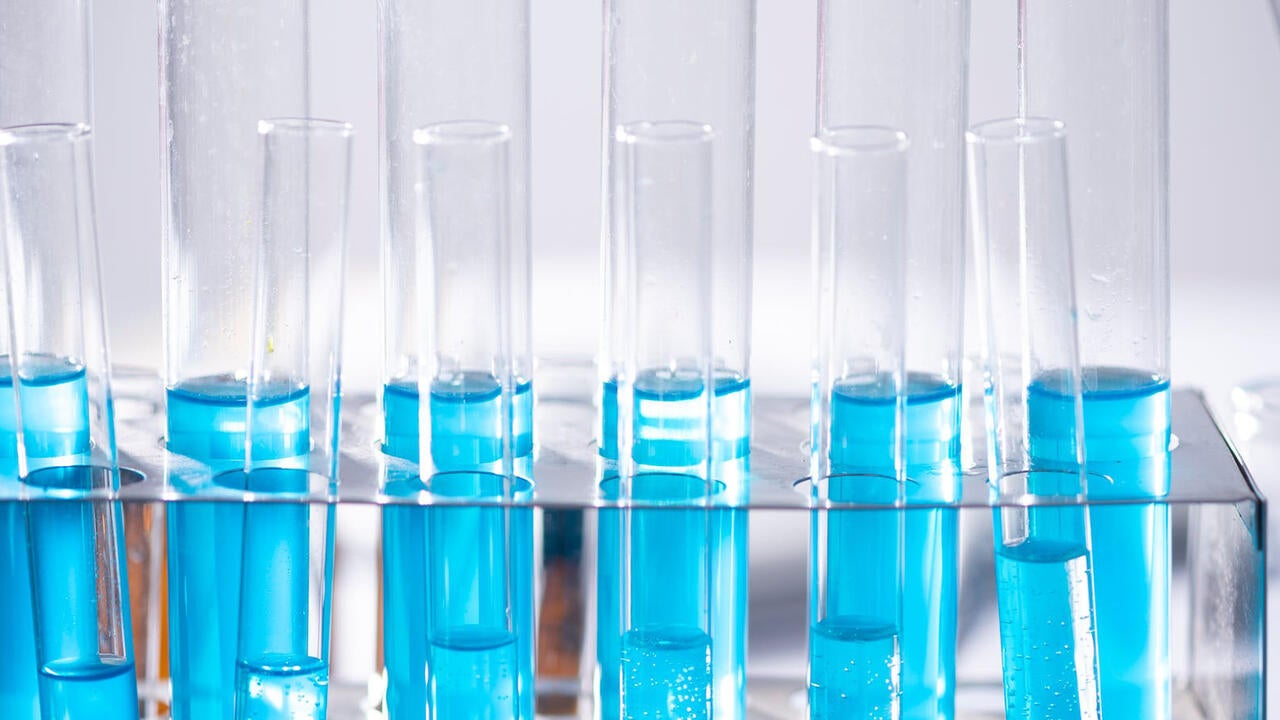
Paper strips make water testing fast, cheap and easy
A fast, simple and inexpensive test developed by researchers at Waterloo Engineering could help billions of people in the developing world avoid getting sick from contaminated water

A fast, simple and inexpensive test developed by researchers at Waterloo Engineering could help billions of people in the developing world avoid getting sick from contaminated water
By Brian Caldwell Faculty of EngineeringA fast, simple and inexpensive test developed by researchers at Waterloo Engineering could help billions of people in the developing world avoid getting sick from contaminated water.
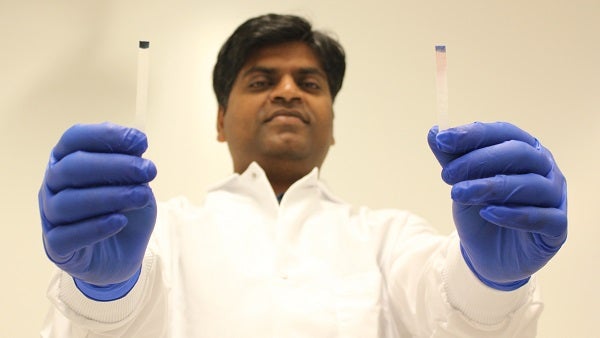
Naga Siva Kumar Gunda displays an unused testing strip, left, and one that has produced a positive result for E. coli bacteria in water by changing colour, right.
The system uses paper strips to test water for the presence of potentially deadly E. coli bacteria in less than three hours and at a cost of about 50 cents, compared to $70 and up to three days for laboratory tests.
That means routine, on-site testing of drinking water in developing areas of the world could become both easy and affordable, preventing illness by triggering actions such as boiling advisories.
“As a community, you need a rapid test so at least you know that the water you are drinking is safe,” says Sushanta Mitra, executive director of the Waterloo Institute for Nanotechnology. “This is a breakthrough with the potential to have a huge impact on public health.”
Researchers targeted E. coli – the culprit in a deadly disease outbreak in Walkerton, Ontario in 2000 – because it is an indicator organism of water contamination in general.
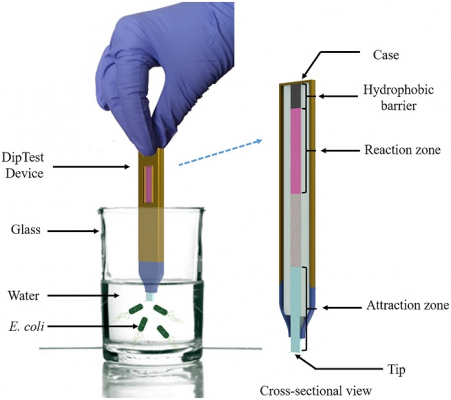
This graphic shows how simple strips developed by Waterloo Engineering researchers detect E. coli bacteria in water.
The bottom of the paper strip developed by Mitra and his colleagues is laced with sugar, which begins to dissolve when placed in water. E. coli bacteria are attracted by the resulting sugar trail in the water and get trapped in the porous paper when they make contact with it.
As water is drawn up the paper, it carries the trapped bacteria into the “reaction zone,” an area treated with a chemical mixture. The bacteria then react with the chemicals to turn the strip pinkish red to indicate a positive result.
High levels of E. coli contamination can produce a result in just 30 minutes, while low levels require up to three hours.
Work to refine the strips and reduce test times is now being done by Glacierclean Technologies Inc., a startup company founded by Mitra, also a mechanical and mechatronics engineering professor at Waterloo, and Naga Siva Kumar Gunda, a post-doctoral fellow at Waterloo, to commercialize their research.
The company already sells more complicated, more elaborate mobile kits to detect E. coli in water for about $5 a test.
Mitra’s research appears in the journal PLOS ONE.

Read more
Waterloo prof leads a team of researchers to improve water quality through a community-focused approach underpinned by technical excellence
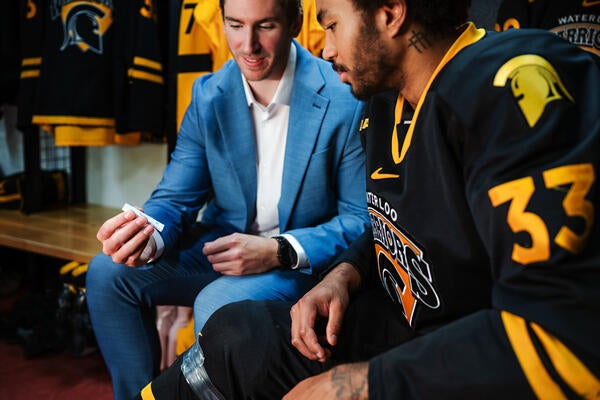
Read more
New medical device removes the guesswork from concussion screening in contact sports using only saliva
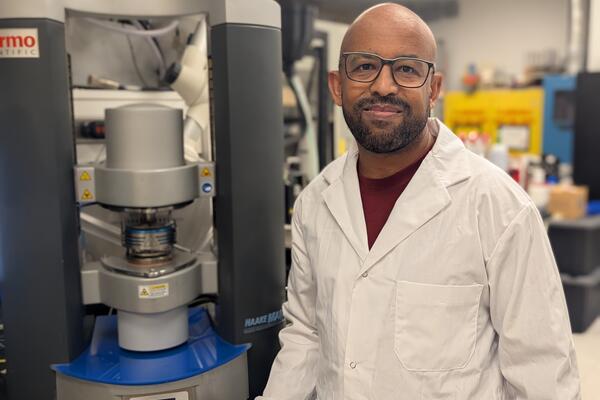
Waterloo researcher Dr. Tizazu Mekonnen stands next to a rheometer, which is used to test the flow properties of hydrogels. (University of Waterloo)
Read more
Plant-based material developed by Waterloo researchers absorbs like commercial plastics used in products like disposable diapers - but breaks down in months, not centuries
Read
Engineering stories
Visit
Waterloo Engineering home
Contact
Waterloo Engineering
The University of Waterloo acknowledges that much of our work takes place on the traditional territory of the Neutral, Anishinaabeg, and Haudenosaunee peoples. Our main campus is situated on the Haldimand Tract, the land granted to the Six Nations that includes six miles on each side of the Grand River. Our active work toward reconciliation takes place across our campuses through research, learning, teaching, and community building, and is co-ordinated within the Office of Indigenous Relations.